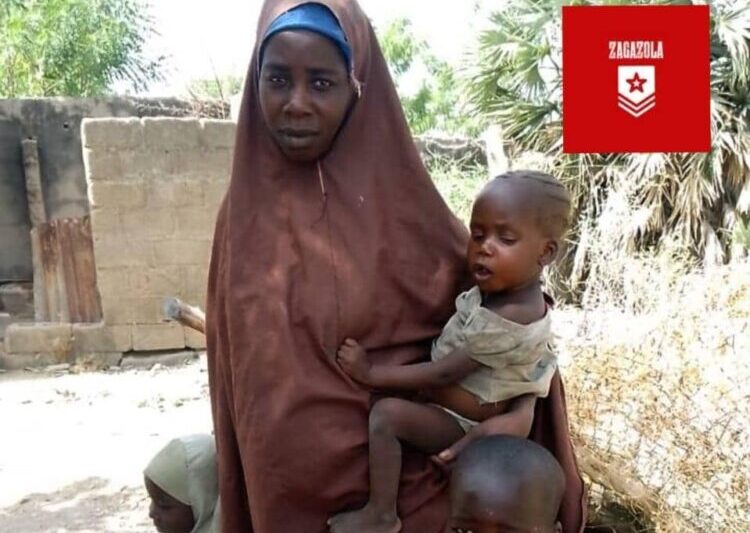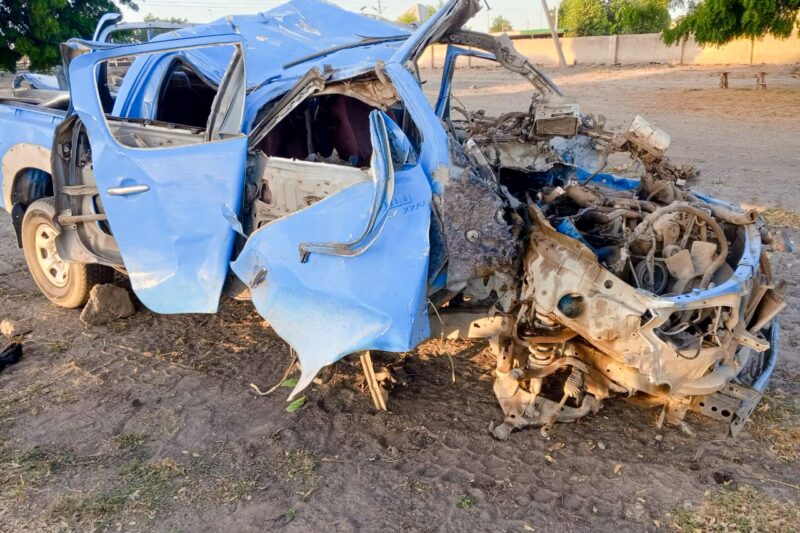Even though female genital mutilation (FGM) was banned in Nigeria in 2015, the country still has one of the highest rates of what is recognised internationally as a violation of the human rights, the health and the integrity of girls and women.
In the Lake Chad region – Chad, Cameroon, Niger and Nigeria – it is most often a cultural and traditional practice.
There have been many awareness campaigns by local and international non-governmental organisations (NGOs), including many United Nations agencies, on the effects of FGM, yet it persists despite a number of reforms and laws to curb the harmful traditional practices against women and girls in Nigeria.
RNI reporter Nana Hadiza Mustapha spoke to nine-year-old Hanan Sheriff Abubakar, who was taken from Kano State to Borno State for her circumcision. The little girl said: “It was very painful and I cried a lot during the circumcision. But now I feel all right.”
Her grandmother, Ashe Ammi, said circumcision of girls was part of the Shuwa Arab cultural tradition and it was regarded as cleansing the woman’s genitals “from dirt”.
“It increases the dignity of a woman, washing away diseases from her private parts and it is done to reduce women’s high sexual urges and, in turn, protect her from unwanted intercourse except with her husband. She will have high dignity in front of his eyes,” Ammi said.
Circumcisions used to be done to girls aged seven or eight, she said. But, because of the many campaigns against it, some parents no longer had their girls circumcised or they had them done at an earlier age, usually about five.
“It is the elderly women of the tribe, who are known for their expertise, who carry out the circumcisions but even they can harm the girl if they are not careful. It needs to be done by an expert. Afterwards a hole is dug and the circumcised flesh is buried.”
Ammi said: “Because the wound where the flesh was removed is painful, in the olden days, we used traditional hot oil that was rubbed into the wound to help it heal. But nowadays, because of modernisation, iodine is use to clean the wound and, for the traditional part of the treatment, we use a fresh tea leaf, pound it and mix it with herb powder to be put on to the wound to heal in time.”
To help girls heal they were washed in warm water, fed nutritional food, such as pepper soup, roasted chicken and milk. They were also given potassium porridge with fat. The girls remained at home for seven days, taken care of by the elderly woman, she said.
“It is an old practice. All my female children and grandchildren that are married into the Shuwa tribe are circumcised and they are in sound health. There is no unwanted smell or dirt coming from their genital area. Even the dowry of circumcised women is higher than that for non-circumcised women.”
Ammi said: “I myself am circumcised and will not stop the practice in my family because it is a sign of pride in my culture.”
Abdullahi Maina, a civil servant in Maiduguri, said: “I support the act but only if it is done according to medical procedure, using safe and hygienic and equipment. The cutting reduces the sexual urge of a girl which, in turn, helps to reduce the rate of adultery happening in society.”
Ummulkhair Usman, who works at the Girl Child Concerns NGO and is a nurse who specialises in cases of FGM, said she was acutely opposed to the practice.
The NGO is known for empowering girls and women.
Usman said FGM was a violent act against girl children. Not only was it dangerous and harmful but it also did not benefit girls and women in any way.
The World Health Organisation (WHO) said FGM could cause severe bleeding and problems urinating, and later cysts, infections, as well as complications in childbirth and increased risk of newborn deaths.
Usman said there could be psychological implications, too, such as depression and anxiety.
“No religion has given anyone the right to inflict violence on another person. Circumcision damages the life of the girl because it inflicts serious injury.”
The NGO holds regular awareness programmes to enlighten and empower women, some of whom had told them that they would continue the practice because that was what their husbands wanted.
“I want all parents to quit circumcising their girl children because it is a painful, harmful abuse of their kids,” Usman said.
Nigeria’s Minister of Women Affairs, Pauline Tallen, said: “Although government has undertaken a number of health reforms, including laws against harmful traditional practices, many cultural and religious practices still put the health of women in doldrums.”
She told the News Agency of Nigeria : “I wish to state that the ministry is committed to abolishing all traditional practices that endanger the health and dignity of girls and womanhood in Nigeria and, in this regard, will work more with the Ministry of Health.”
The WHO said FGM was a violation of the human rights of girls and women.
It involved the partial or total removal of external female genitalia or other injury to the female genital organs for non-medical reasons. The practice had no health benefits for girls and women.
FGM was carried out on girls between infancy and 15.
More than 200 million girls and women alive today had been cut in 30 countries in Africa, the Middle East and Asia.
The WHO said it was opposed to all forms of FGM and was opposed to healthcare providers, particularly, performing it because it was a means of legitimising the practice.
AISHA JAMAL








